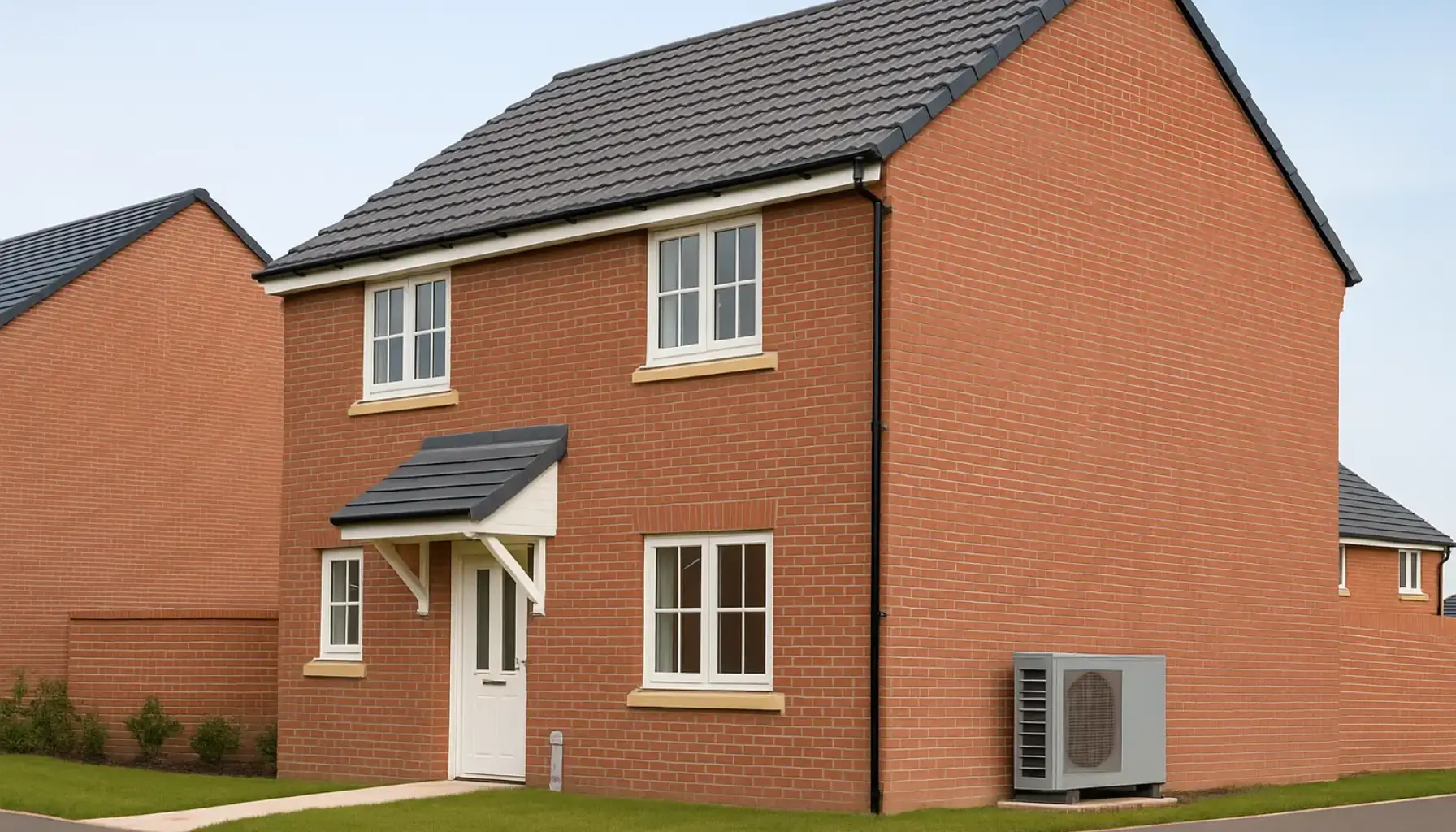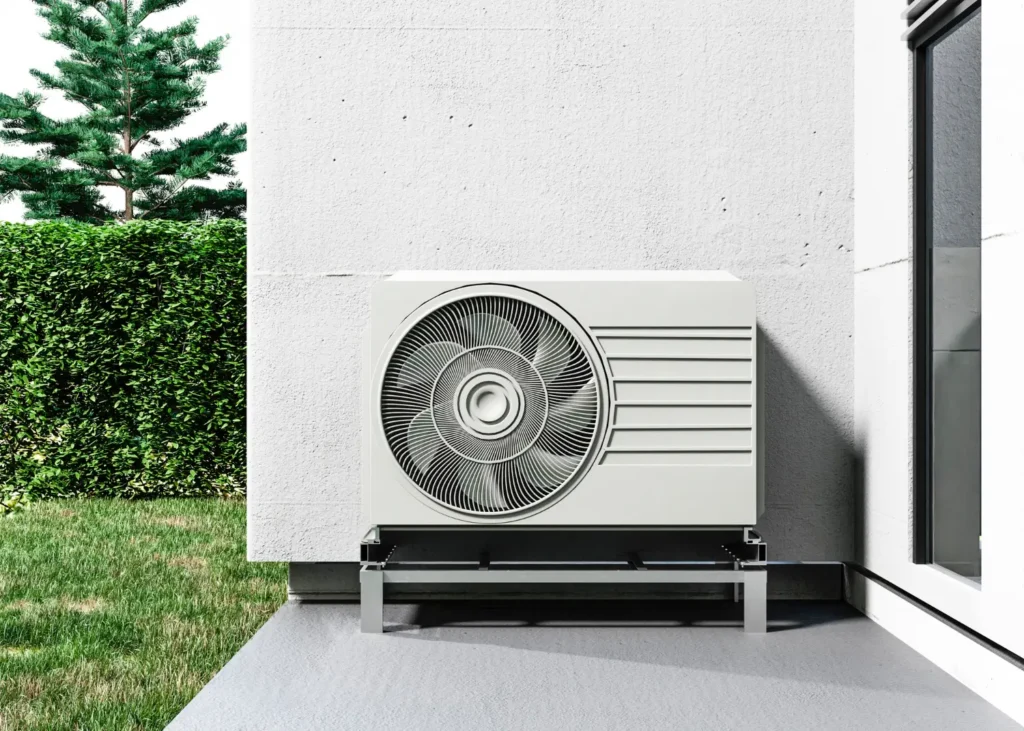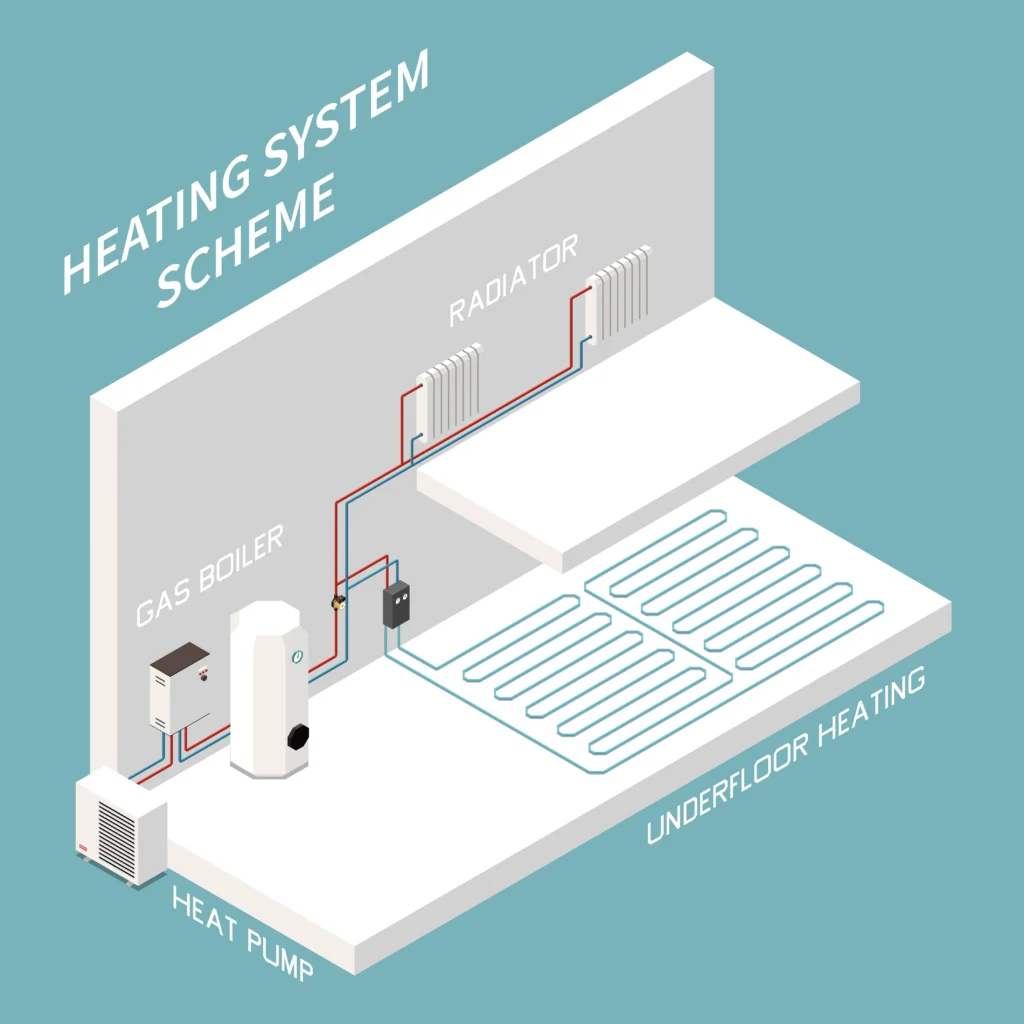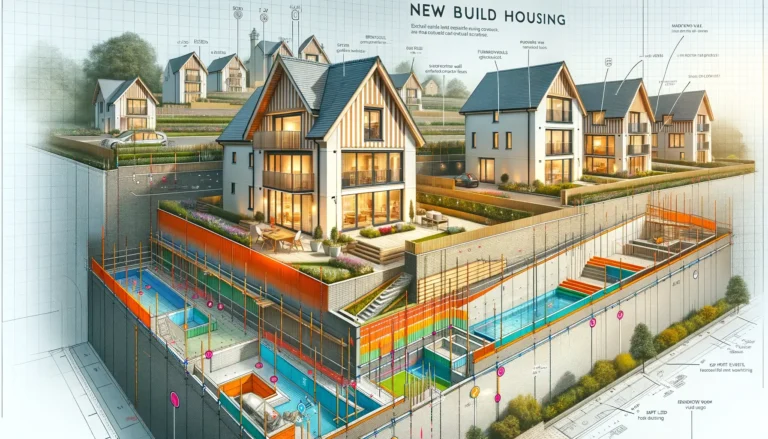New Build | Snagging Inspections - RPSA Accredited Professionals - You Deserve The Best!

Are Heat Pumps Worth It for New Build Homes?
What are the the pros and cons of installing a heat pump in a new build home? Learn about energy savings, government grants and potential drawbacks.

Introduction
When moving into a new build home or when the time comes to replace the current boiler, choosing the right heating system is a decision that can impact your comfort, energy bills, and carbon footprint for years to come. Among the rising alternatives to traditional gas fired condensing boilers, heat pumps are gaining serious attention.
But are they worth it for your new build property?
What Is a Heat Pump?
In a nutshell, heat pumps are electric heating systems which work by using a refrigeration cycle in reverse, absorbing heat from either the ground, air or via water and raising its temperature to provide sufficient ambient heating to a space. They’re significantly more efficient than conventional heating systems, especially when paired with features like underfloor heating. This makes them a particularly attractive option for energy-conscious new homeowners.

What are The Benefits of Using Heat Pumps in New Builds?
There are several benefits to heat pumps, here are some of the key points to consider:
- Energy Efficiency & Cost Savings: Heat pumps can reduce your home’s carbon emissions by up to 80% compared to gas boilers (Energy Saving Trust). While the initial outlay is high, the long-term savings on energy bills can be substantial, especially with well-insulated new build homes.
- Compatibility with Underfloor Heating: Many new builds often utilise or have upgrades available such as underfloor heating, which naturally operate at lower temperatures than traditional radiators. This synergy makes heat pumps even more efficient, delivering consistent warmth while keeping operating costs low.
- Government Grants: Through the UK’s Boiler Upgrade Scheme, eligible homeowners can receive grants of up to £7,500 to help cover the cost of installation (GOV.UK Boiler Upgrade Scheme). This can significantly lower the barrier to entry, making heat pumps a more accessible option.
What Are the Downsides of Heat Pumps?
Although there are several benefits as highlighted above, it is especially important to consider the downsides, which we go over below:
- High Upfront Costs: The average cost of installing an air-source heat pump in a typical 3-bedroom house ranges from £7,000 to £16,500. Even with the grant, you could be looking at a net spend of several thousand pounds. (prices vary based on location, current material costs and installers chosen. We would always advise to get multiple quotes from reputable companies)
- Limited Support for Replacements: The Boiler Upgrade Scheme applies only to first-time installations. If your heat pump breaks down after the initial warranty period, you may not be eligible for further financial support. Repair costs, depending on the system, can be significant. We would advise setting aside savings over many years to ensure funds are available when the time comes for replacement.
- Installation Requirements: A valid Energy Performance Certificate (EPC) and a heating system under 45 kWth are required to qualify for the grant. This isn’t usually an issue with new builds, but it’s something to be aware of especially if you are considering the upgrade to an older property. There also space or location considerations with regards to ground and water source heat pumps which may rule them out as possible options.
Heat Pump vs Gas Boiler Comparison
Its important to note that this is a general overview, specific systems, model and manufacturers, location as well as the size of the property all have considerable effect on outcomes. We have based the comparison using air source heat pumps as they have the least requirements for install when compared to ground and water source, however please note the later two options efficiencies may be better but with more upfront capital required.
With that disclaimer out of the way here’s our quick breakdown of many of the key pros and cons, in table form!
| Comparables | Heat Pump (Air Source) | Traditional Gas Boiler |
| Installation Cost | £7,000–£16,500 (before grant) | £2,000–£4,000 |
| Government Grants | Up to £7,500 via Boiler Upgrade Scheme | Typically not eligible |
| Running Costs | generally lower subject to current electricity costs, especially in well-insulated homes | Moderate, but again subject to current gas prices. |
| Carbon Emissions | Up to 80% lower than gas fired | Higher |
| Efficiency | 300–400% (for every 1 kWh used, 3–4 kWh heat output) | 90–95% efficient |
| Maintenance Needs | Low to moderate | Low to moderate |
| Lifespan | 15–20 years | 10–15 years |
| Noise Level | Can be slightly noisy outdoors | Quieter operation indoors |
| Performance in Cold Weather | Good (modern models adapted for UK climate) | Reliable in all temperatures |
| Space Requirements | Outdoor unit needed, ground source and water source heat pumps have significant additional needs. | Compact, wall-mounted options available. Can generally be hidden in a wall mounted cupboard. |

Are Heat Pumps Right for Your New Build?
Heat pumps are particularly well-suited to new build homes thanks to their modern insulation standards and compatibility with low-temperature heating systems like underfloor heating. If you’re planning a sustainable future and have the capital to invest upfront, a heat pump can provide long-term benefits for both your wallet. However, it’s crucial to weigh the costs and maintenance considerations carefully.
Conclusion
Heat pumps represent a modern, eco-conscious solution that aligns well with the energy efficiency goals of many new build homeowners. With the potential to slash carbon emissions by up to 80% and reduce energy bills in the long term, they are a compelling alternative to traditional gas boilers—especially when supported by generous government grants like the Boiler Upgrade Scheme.
However, the high upfront costs and the lack of support for future replacements can be a barrier for some and an important consideration for all. Also, the suitability of heat pumps can vary depending on the layout of your home and your heating needs. If you’re building or moving into a new home with modern insulation requirements and compatible systems like underfloor heating, a heat pump can be a smart investment.
Want to learn more about snagging? Check out our “New Build Snagging in 5 Mins” and “How Many Snags Should a New Build Have” articles.
If you are in the process of buying a new build or have recently moved in, don’t wait to identify and address potential issues. Contact Snagman today to schedule a professional snagging survey and ensure your home is in perfect condition.


